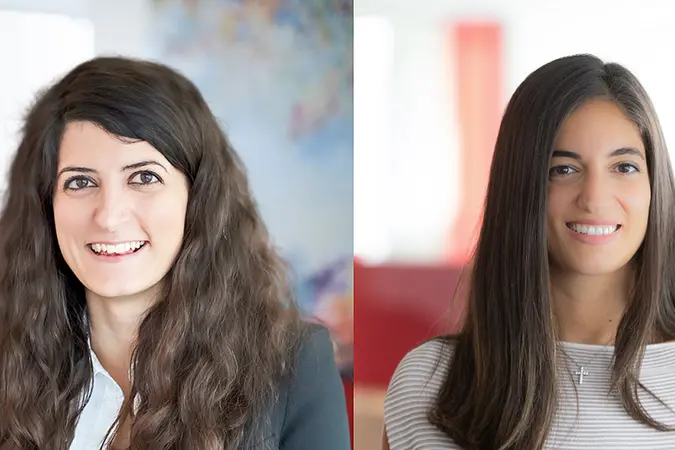PHOTO
- The region has seen unprecedented change in terms of women representation. The United Arab Emirates (UAE) and Qatar continue to lead the region in women workforce participation, with Saudi Arabia seeing the fastest pace of change over the last decade.
- There is still a long way to go to attain gender equity, especially at leadership level. Approximately, 7% of board seats are held by women in the GCC versus 20% globally.
- Beyond being ‘the right thing to do’, gender equity is a critical source of value creation for organizations. In the GCC, 70% of top performing teams have a higher percentage of women.
- A survey of 1,150 professional men and women and diagnostics of 25 of the largest GCC organizations and focus groups indicate that gender bias and stereotypes still exist, cascading into additional barriers in organizations.
- Bain & Company has developed a holistic approach to support organizations in beginning or further pushing their gender equity journey.
DUBAI, UAE: — A new report from Bain & Company, a global consultancy, has revealed that while the GCC has seen never-before change in terms of women representation in the workforce, proactive and measurable gender equity still needs to be achieved.
The Advancing Gender Equity in the Middle East Workforce report includes the results of a survey of 1,150 professional men and women and diagnostics of 25 of the largest GCC organizations, in addition to focus groups and interviews with 50 female leaders in the GCC.
Regional data from the report shows that governments across the GCC have played a significant role in catalyzing gender equity across sectors. Qatar at 60% and the United Arab Emirates (UAE) at 53%, continue to lead the region when it comes to females participating in the workforce. Saudi Arabia has seen the fastest pace of change, reaching 37% female participation in the first quarter of 2023, exceeding the country’s Vision 2030 targets more than seven years ahead of schedule.
Despite these significant strides, the GCC still faces one of the largest gender gaps in the world, according to the World Economic Forum’s Global Gender Gap Index.
The gap is most evident at the leadership level. For example, approximately 7% of board seats are held by women in the GCC, versus 20% globally.
By taking a closer look at the underlying causes, Bain & Company’s research highlights that 70% of women mention gender bias and stereotypes as the primary challenge, along with inadequate hiring processes, lack of mentorship, training, and support for work-life balance. These challenges hinder women’s corporate leadership advancement in the region, and similar challenges are faced globally.
Research shows that teams that are gender and geographically diverse make better business decisions 87% of the time and 70% of top performing teams in the GCC have a higher percentage of women.
Anne-Laure Malauzat, Partner and Chief DEI officer at Bain & Company Middle East, said: “Women have been changing the face of the workforce in the GCC, with a growing number of organizations reaching the tipping point of 30% representation. The government push for gender equity has been a massive trigger of this change and more organizations have seen the clear benefits of gender diversity and added it to their agenda in the last 5 years as a result. What is inspiring is that several of these organizations are homegrown and pioneering gender equity practices and policies at a global level in a way that is uniquely reflective of the region’s cultural and societal context.”
Bain & Company has developed an approach rooted in research and experience that helps organizations gain an understanding of their starting point and decide on the best path forward, in terms of practices. This approach encompasses five key pillars:
- Holistic gender equity strategy, vision, and leadership commitment
- Workplace culture, inclusion, and belonging
- Talent journey
- Compensation and benefits
- External engagement with customers, suppliers, the community plus governments, and clear measurable goals supported by practical organizational policies and programs
Based on our extensive research on these practices, three key models emerge along different maturity stages of the gender equity journey:
- Tier 1: Emerging Adopters are organizations just starting their equity journey
- Tier 2: Determined Learners are businesses that are picking up on their journey
- Tier 3: Trailblazers are the earliest global pioneers in gender equity practices
Bain’s analysis showed that 50% of GCC organizations fall into Tier 1, while 40% are Tier 2, and less than 10% demonstrate Tier 3 attributes.
Karen Khalaf, Partner and Women@Bain lead at Bain & Company Middle East said: “Women can add significant value to the workplace, but there are still too few women reaching board and corporate leadership positions in the region. There are so many levers organizations can pull to begin or further their gender equity journey; and if all organizations play their part – and learn from each other – we can further build on the momentum of the region and close the gender gap.”
-Ends-
About Bain & Company
Bain & Company is a global consultancy that helps the world’s most ambitious change-makers define the future.
Across 64 cities in 39 countries, we work alongside our clients as one team with a shared ambition to achieve extraordinary results, outperform the competition, and redefine industries. We complement our tailored, integrated expertise with a vibrant ecosystem of digital innovators to deliver better, faster, and more enduring outcomes. Our 10-year commitment to invest more than $1 billion in pro bono services brings our talent, expertise, and insight to organizations tackling today’s urgent challenges in education, racial equity, social justice, economic development, and the environment. Since our founding in 1973, we have measured our success by the success of our clients, and we proudly maintain the highest level of client advocacy in the industry.
For more information or interview requests please contact:
April Zaw
Bain & Company
Email: April.Zaw@Bain.com




















